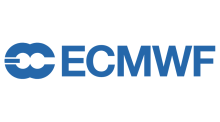REPLAY NOW AVAILABLE
The public S|B Annual Network Conference (09:00 – 17:30 CET)
Hybrid: Brussels at BluePoint - Bd Auguste Reyers 80, 1030 Brussels and online
February 7 | Brussels at BluePoint - Bd Auguste Reyers 80, 1030 Brussels [access plan can be found here] and online
Behind the buzzwords that frame policy agendas for sustainability – net zero, pandemic preparedness, green deal, circular economy, etc – lies a wealth of opportunity for research and innovation (R&I) communities. Even before the COVID and Ukraine crises, governments, companies and others were pouring money into addressing the most “wicked problems” of our age, ranging from climate change and plastics to industrial decarbonisation and food production. In parallel, Horizon Europe – the EU’s flagship €95.5 billion R&I programme – will commit half of its budget to tackling global challenges through to 2030, in direct support of the United Nations Sustainable Development Goals (UN SDGs).
There are plenty of indicators from the R&D world to suggest this level of commitment is justified. From atmospheric carbon removal, nuclear fusion and quantum computing to lab-created meat, hydrogen-fuelled vehicles and cell- and gene-based therapies, the narrative is one of breakthroughs, “game changers” and huge potential. Even though some of these technologies may take years to reach the mainstream, the drumbeats of positive expectation grow louder.
And yet. In the rush to champion the role of technology in delivering more sustainable futures, there is a sense that potential downsides are often overlooked. According to the International Energy Agency, the clean energy transition may require a six-fold increase in mining rare earth minerals and precious metals. Digital transformation continues to drive up emissions and carbon footprints in the ICT sector (without factoring in the energy needs of cryptocurrencies). Biofuel production continues to negatively affect food supply, forests and biodiversity. Meanwhile, the continued wrangling over COVID vaccine rights and distribution illustrates the tenuous nature of global health tech pledges.
So what does all of this imply for the worlds of research, industry and policy? On 7 February 2023, the Science|Business Network and international R&I leaders will convene for a unique set of debates: first, to explore the science and tech agendas to bring planetary sustainability goals within reach, and second, to address some of the fundamental tensions at the interface between the two, including:
- Which role for R&I in pursuit of the 2030 UN Sustainable Development Goals?
- Will Horizon Europe make a tangible difference, and how will today’s crises influence the rest of its strategic agenda?
- Are the green and digital transitions truly compatible, and how to manage potential risks and unintended consequences of pursuing both in parallel?
- Where will boundary lines be drawn between international cooperation and national interests in sustainability-related domains, not least around technology sovereignty?
- Can foresight help R&I decision makers agree on what to prioritise, and how to align investment with longer term impacts and outcomes?
Download the event pack here.
Click on the speakers' pictures to read their bios and session time.
Click on the sessions for more details.
For information surrounding possible sponsorship or partnerships of this Network Conference or other Science|Business events, please feel free to reach out to Sebastian Dohmen via [email protected]




 A unique international forum for public research organisations and companies to connect their external engagement with strategic interests around their R&D system.
A unique international forum for public research organisations and companies to connect their external engagement with strategic interests around their R&D system.